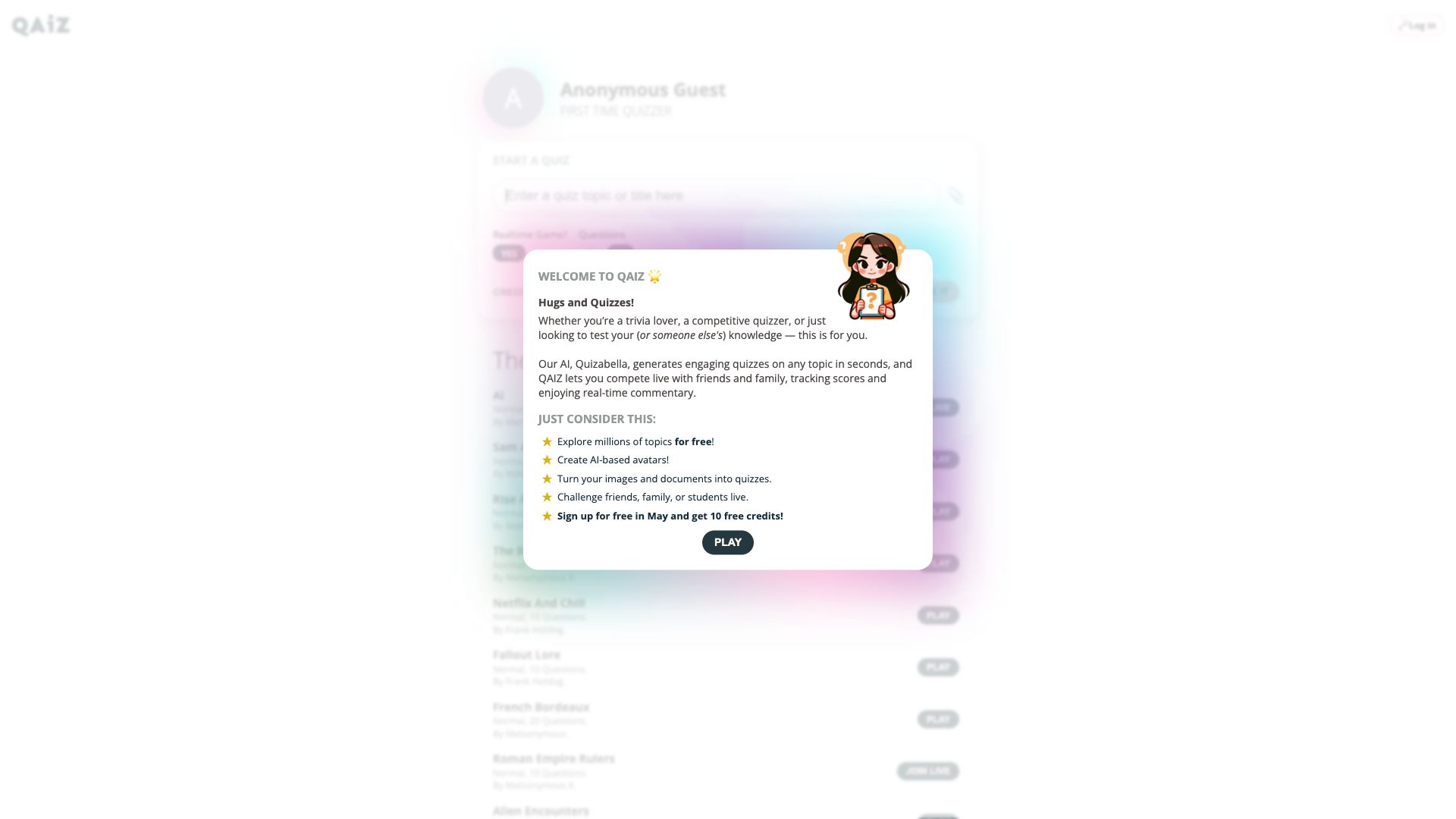Awesome AI App Builder Tools in 2024
Discover the awesome 1 AI tools for 2024 By Candytools
QAIZ is a no-code test automation platform that empowers anyone to create, run, and scale tests across web, mobile, and API - no coding required. Improve software quality and accelerate delivery with QAIZ.
More AI Tools Categories
What is AI App Builder?
An AI app builder is a platform or tool that utilizes artificial intelligence to simplify and accelerate the process of creating mobile applications. These platforms leverage machine learning and natural language processing to automate tasks, provide design suggestions, and even generate code, making app development more accessible to a wider audience.
Here's how AI app builders typically work:
-
Concept and Requirements Gathering:
- Visual Interface: Most AI app builders provide a user-friendly visual interface where you can define your app's purpose, target audience, and desired features.
- Questionnaires and Prompts: The AI may ask you questions about your app's functionality, design preferences, and target platform (iOS, Android).
- Example Apps: Some platforms let you choose from existing app templates or examples as a starting point.
-
AI-Powered Design and Development:
- Layout and UI Suggestions: The AI suggests screen layouts, user interface elements, and navigation structures based on best practices and your input.
- Automated Code Generation: The AI can generate code for basic app functionalities, reducing the need for manual coding.
- Data Integration: Some AI app builders facilitate the integration of data sources or APIs to incorporate dynamic content.
-
Customization and Refinement:
- You can customize the AI-generated app design, add your own content, adjust features, and personalize the user experience.
-
Testing and Deployment:
- AI app builders often include testing tools and provide guidance on publishing your app to app stores.
Benefits of Using AI App Builders:
- Faster Development: Significantly reduces the time and effort needed to create an app.
- Reduced Costs: Often more cost-effective than hiring a full development team.
- Accessibility: Opens up app development to individuals with limited coding experience.
- Improved User Experience: AI can analyze user data and suggest improvements to enhance app usability.
Examples of AI App Builders:
- Appy Pie
- BuildFire
- Thunkable
- Microsoft Power Apps
- Google AppSheet
Limitations:
- Customization Limits: AI-generated code and designs might not be as flexible or customizable as building from scratch.
- Complexity Constraints: AI app builders may not be suitable for highly complex apps requiring advanced functionalities.
- Learning Curve: While AI simplifies development, there's still a learning curve to understanding the platform and its capabilities.
The Future of AI App Builders:
- Increased sophistication and capabilities of AI models, enabling the creation of more complex and feature-rich apps.
- Seamless integration with external services and APIs for enhanced functionality.
- Greater use of natural language processing to enable users to describe app concepts in plain English, with AI generating the necessary code.
AI app builders are transforming the app development landscape, making it easier and faster for individuals and businesses to bring their app ideas to life. As AI technology advances, we can expect even more powerful and versatile AI-driven app development tools in the future.
